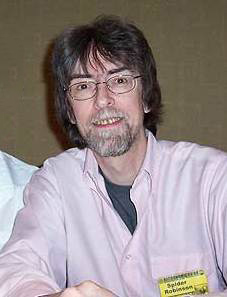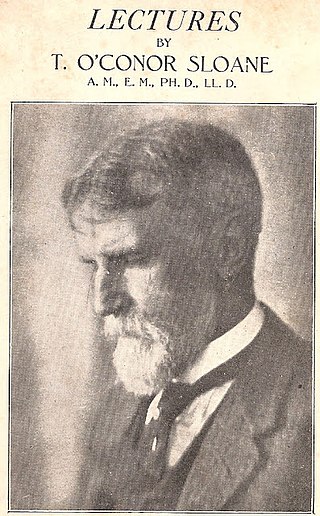Related Research Articles

Herbert George Wells was an English writer. Prolific in many genres, he wrote more than fifty novels and dozens of short stories. His non-fiction output included works of social commentary, politics, history, popular science, satire, biography and autobiography. Wells is now best remembered for his science fiction novels and has been called the "father of science fiction."

Margaret Eleanor Atwood is a Canadian poet, novelist, literary critic, essayist, teacher, environmental activist, and inventor. Since 1961, she has published eighteen books of poetry, eighteen novels, eleven books of non-fiction, nine collections of short fiction, eight children's books, two graphic novels, and a number of small press editions of both poetry and fiction. Atwood has won numerous awards and honors for her writing, including two Booker Prizes, the Arthur C. Clarke Award, the Governor General's Award, the Franz Kafka Prize, Princess of Asturias Awards, and the National Book Critics and PEN Center USA Lifetime Achievement Awards. A number of her works have been adapted for film and television.

Spider Robinson is an American-born Canadian science fiction author. He has won a number of awards for his hard science fiction and humorous stories, including the Hugo Award 1977 and 1983, and another Hugo with his co-author and wife Jeanne Robinson in 1978.

Ferguson Wright Hume, known as Fergus Hume, was a prolific English novelist, known for his detective fiction, thrillers and mysteries.

Thomas O'Conor Sloane was an American scientist, inventor, author, editor, educator, and linguist, perhaps best known for writing The Standard Electrical Dictionary and as the editor of Scientific American, from 1886 to 1896 and the first science fiction magazine, Amazing Stories, from 1929 to 1938.

The Kiss is an 1896 film, and was one of the first films ever shown commercially to the public. Around 18 seconds long, it depicts a re-enactment of the kiss between May Irwin and John Rice from the final scene of the stage musical The Widow Jones. The film was directed by William Heise for Thomas Edison. The film was produced in April 1896 at the Edison Studios of Edison, the first film studio in the United States. At the time, Edison was working at the Black Maria studios in West Orange, New Jersey.

Omni was a science and science fiction magazine published in its domestic American market as well as the UK. It contained articles on science, parapsychology, and short works of science fiction and fantasy. It was published as a print version between October 1978 and 1995. The first Omni e-magazine was published on CompuServe in 1986 and the magazine switched to a purely online presence in 1996. It ceased publication abruptly in late 1997, following the death of co-founder Kathy Keeton; activity on the magazine's website ended the following April.
A strong element in contemporary Canadian culture is rich, diverse, thoughtful and witty science fiction.
Donald Henry Tuck was an Australian bibliographer of science fiction, fantasy and weird fiction. His works were "among the most extensive produced since the pioneering work of Everett F. Bleiler."

The Hostage of Zir is a science fiction novel by American writer L. Sprague de Camp, the seventh book of his Viagens Interplanetarias series and the fifth of its subseries of stories set on the fictional planet Krishna. Chronologically it is the third Krishna novel. It was first published in hardcover by Berkley/Putnam in 1977, and in paperback by Berkley Books in 1978. A new paperback edition was published by Ace Books in 1982 as part of the standard edition of the Krishna novels. An e-book edition was published by Gollancz's SF Gateway imprint on September 29, 2011 as part of a general release of de Camp's works in electronic form. The novel has also been translated into German and Czech.

The Law of Dreams is a historical fiction novel about the Great Famine of Ireland by Canadian author Peter Behrens. Published in 2006 by House of Anansi Press, it was the recipient of that year's Governor General's Award for English language fiction.
Thomas A. Easton is a teacher and well-known science fiction critic and author. He retired as a professor from Thomas College of Maine in 2014 and now teaches part-time at Mount Ida College in Newton, MA.
Lisa Smedman is a science fiction and fantasy author and journalist. Her novel Extinction, set in the Forgotten Realms universe, was a New York Times bestseller. Smedman first became known for gaming adventure novels, and later published her own independent fantasy novels.

The Viagens Interplanetarias series is a sequence of science fiction stories by L. Sprague de Camp, begun in the late 1940s and written under the influence of contemporary space opera and sword and planet stories, particularly Edgar Rice Burroughs's Martian novels. Set in the future in the 21st and 22nd centuries, the series is named for the quasi-public Terran agency portrayed as monopolizing interstellar travel, the Brazilian-dominated Viagens Interplanetarias. It is also known as the Krishna series, as the majority of the stories belong to a sequence set on a fictional planet of that name. While de Camp started out as a science fiction writer and his early reputation was based on his short stories in the genre, the Viagens tales represent his only extended science fiction series.

The Swords of Zinjaban is a science fiction novel written by L. Sprague de Camp and Catherine Crook de Camp, the eleventh book of the former's Viagens Interplanetarias series and the eighth of its subseries of stories set on the fictional planet Krishna. Chronologically it is the eighth Krishna novel as well. It was first published in paperback by Baen Books in February 1991. An E-book edition was published by Gollancz's SF Gateway imprint on September 29, 2011 as part of a general release of de Camp's works in electronic form.

The Bones of Zora is a science fiction novel by American writers L. Sprague de Camp and Catherine Crook de Camp, the ninth book of the former's Viagens Interplanetarias series and the seventh of its subseries of stories set on the fictional planet Krishna. Chronologically it is the sixth Krishna novel. It was first published in hardcover by Phantasia Press in 1983, and in paperback by Ace Books in August, 1984 as part of the standard edition of the Krishna novels. An E-book edition was published by Gollancz's SF Gateway imprint on September 29, 2011 as part of a general release of de Camp's works in electronic form. The novel has also been translated into German.
Bog Child is a historical novel by Siobhan Dowd published by David Fickling (UK) and Random House Children's Books (US) on 9 September 2008, more than a year after her death. Set in the 1980s amid the backdrop of the Troubles of Northern Ireland, it features an 18-year-old boy who must study for exams but experiences "his imprisoned brother's hunger strike, the stress of being a courier for the provisional IRA, and dreams of a murdered girl whose body he discovered in a bog." In flashback and dream there are elements of the murdered girl's prehistoric or protohistoric life and death.
William Edwin Bell was a Canadian author of young adult fiction, born in Toronto, Ontario. He lived in Orillia, Ontario.

The Mystery of a Hansom Cab is a mystery fiction novel by the Australian writer Fergus Hume. The book was first published in Australia in 1886. Set in Melbourne, the story focuses on the investigation of a homicide involving a body discovered in a hansom cab, as well as an exploration into the social class divide in the city. The book was successful in Australia, selling 100,000 copies in the first two print runs. It was then published in Britain and the United States, and went on to sell over half a million copies worldwide, outselling the first of Arthur Conan Doyle's Sherlock Holmes novels, A Study in Scarlet (1887).
Heart of the World is an 1895 book by H. Rider Haggard about a lost Mayan city in Mexico. Its importance in the history of fantasy literature was recognized by its republication by the Newcastle Publishing Company as the tenth volume of the Newcastle Forgotten Fantasy Library in September, 1976.
References
- ↑ unsigned review "Canadian Fiction" The Canadian Magazine Vol. VIII No. 3 (January, 1897); p. 284
- ↑ Ketterer, David, Canadian Science Fiction and Fantasy, Indiana University Press, 1992; p. 17
- ↑ Fergus, Dyjan, Tisab Ting, or, the Electrical Kiss, Hunter, Rose, Toronto, 1896 (reproduced 1980), ISBN 0665030894